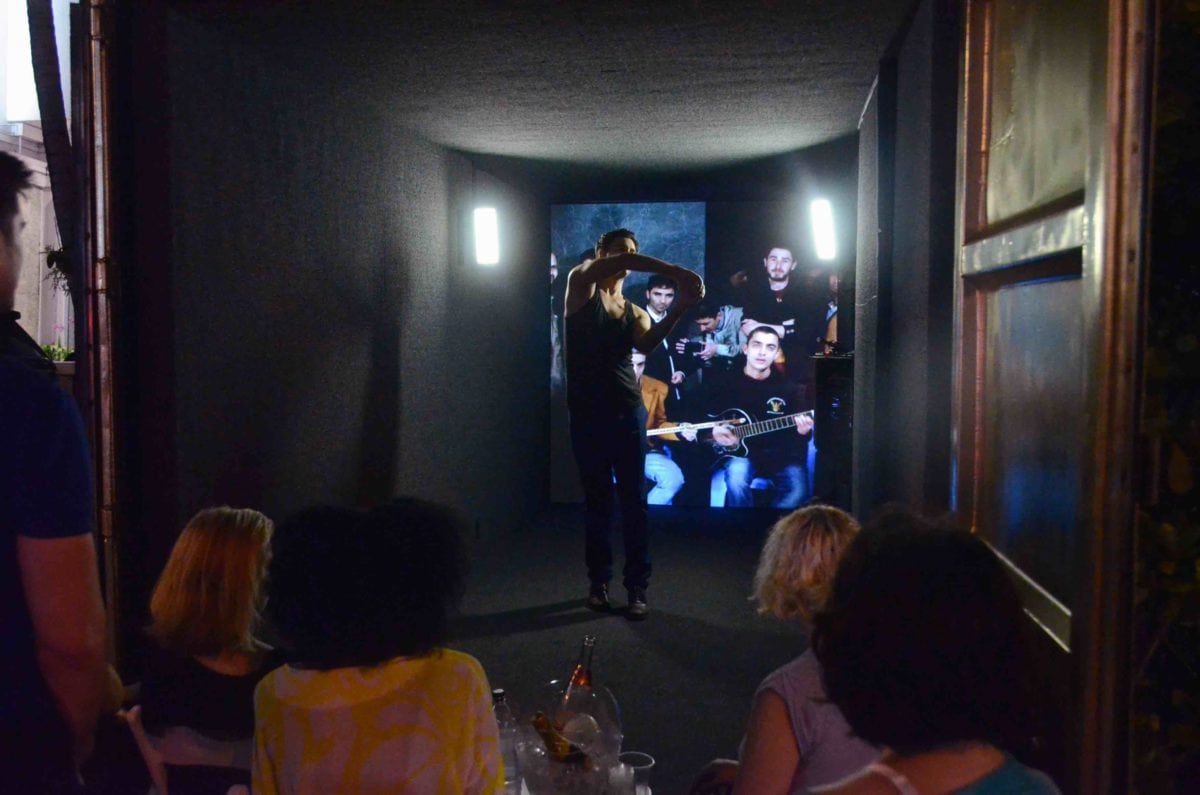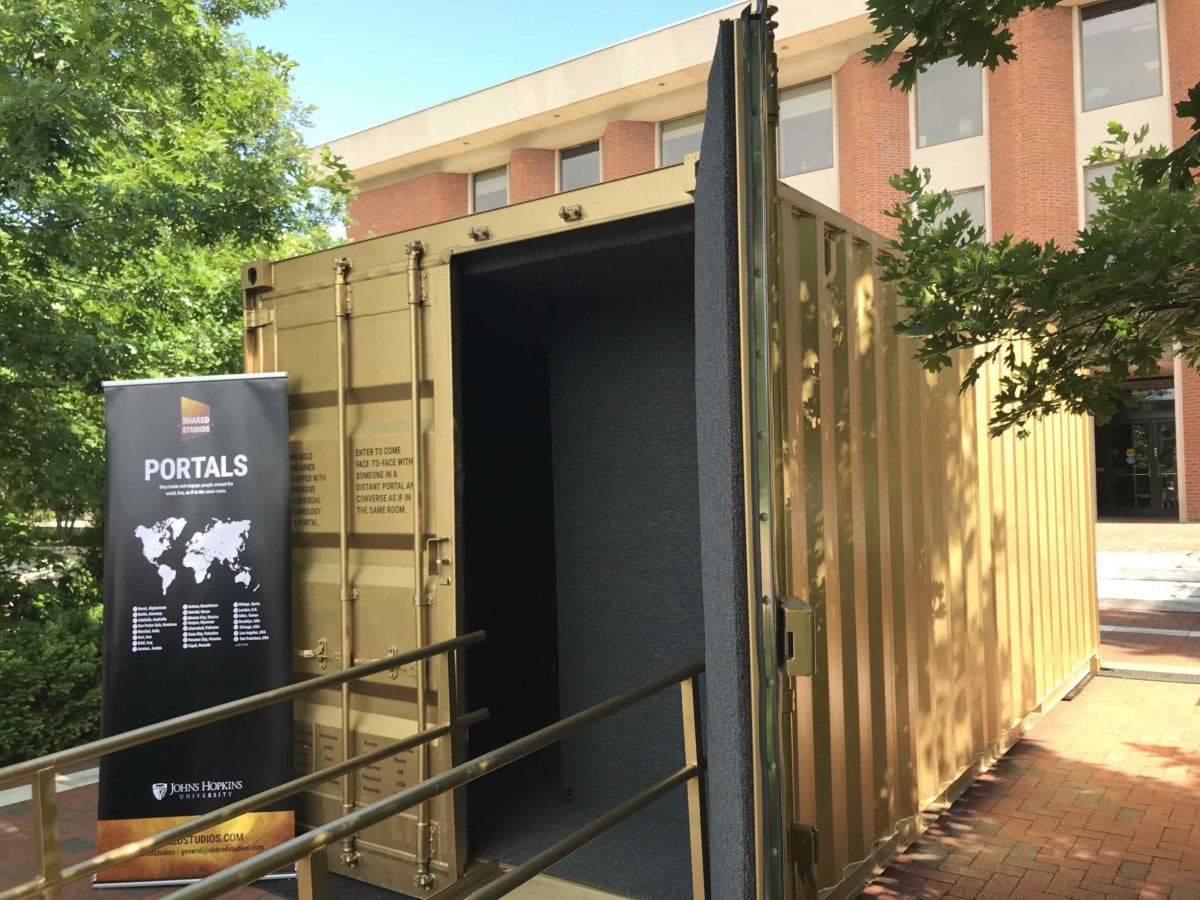A hackathon set to be held next week is bringing together students and medical workers in Baltimore and Gaza City.
It won’t involve travel. Instead, the key to link lies within a gold shipping container.
Known as Portals, the retired cargo transport vessels allow groups of people from different sides of the world to sit down for a conversation.
https://twitter.com/JHUBME/status/1007287312160645122
The portals were created by former journalists Amar Bakshi and Michelle Moghtader, who are cofounders of D.C.–based Shared Studios.
“We wanted to create a space where people can create their own understanding of one another,” Moghtader said Thursday morning on the Decker Quad at the Johns Hopkins Homewood campus, where one of the Portals is currently stationed.
The Portals are outfitted with audio-visual technology that allows for a direct conversation. Participants sit in a gray room, with counterparts appearing life-size on a screen, as if they’re sitting across from one another. There are now stations in 30 cities, and not all are in shipping containers. They’ve launched temporary inflatable sites, and one is in a former gas station.
“When you step inside, you’re face-to-face with somebody in a different part of the world, and it feels like you’re in the same room as them,” Moghtader said.

Portals first came to Baltimore in 2017, when a shipping container made an appearance at Light City, then was stationed at Lexington Market. The focus at that time was on conversations in communities around the country on criminal justice and policing. That discussion continued at Hopkins on Thursday afternoon, as coordinator of the effort and JHU Professor Vesla Weaver organized conversations with people in Milwaukee.
Each of the locations has a local curator to make connections that are interesting to the community.
“It not just connects you to people around the world, but it creates a convening point that invites different folks from different parts of a community together,” Bakshi said, adding that played out at Lexington Market site.
The current run at Johns Hopkins was spearheaded through the Johns Hopkins Stavros Niarchos Foundation Agora Institute, a nascent initiative that seeks to foster civic discourse. Among the goals is creating new platforms for dialogue, said Elizabeth Smyth, who is working as an adviser on SNF Agora. With Portals, that goal is clearly demonstrated.
“Through that, you’re connecting to people, and misperceptions and misconceptions that people have about each other melt away,” Smyth said.
The stay at Hopkins also fits with a wider goal of Portals to inspire direct collaboration. Throughout the morning on Thursday, Johns Hopkins students and others cycled in and out to converse with students and medical workers in Gaza City. They’re getting ready for a hackathon held by Hopkins’ Center for Bioengineering and Design. Running from June 23-July 1, the hackathon focuses on solutions first responders can use in health crises. By the end of one conversation, Instagram handles were exchanged.
For the event, the organizers are looking to add more cameras, as well as whiteboards. Each of the five hackathon teams will have members in both Baltimore and Gaza, meaning the collaboration is built-in, said CBID Executive Director Youseph Yazdi.
The shipping container will be on campus through the end of the hackathon on July 1.
https://www.youtube.com/watch?v=ymFPQpdXVL8
How a shipping container is connecting strangers around the world







